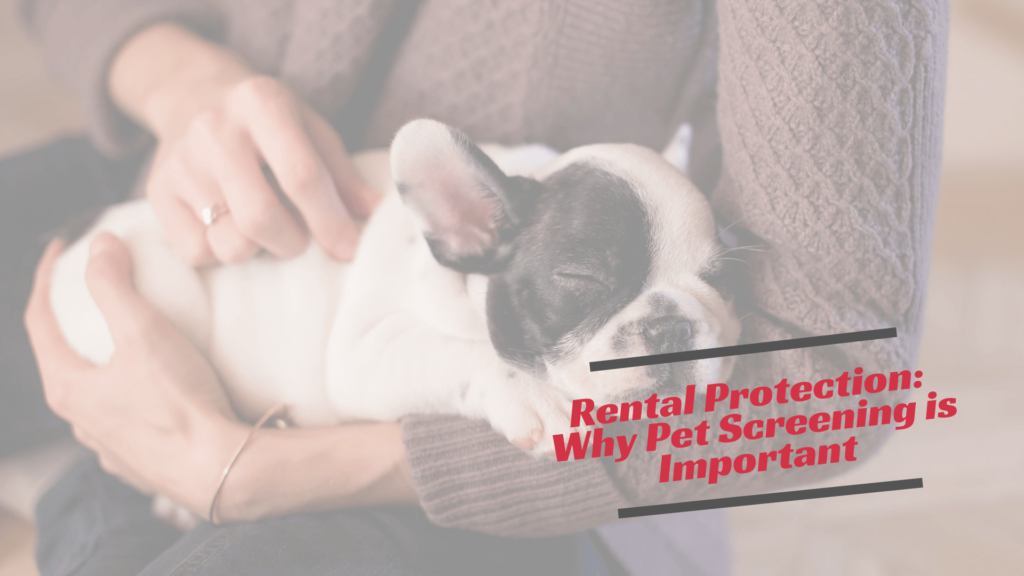
Allowing pets into your Brentwood rental property is an excellent practice. You’ll face a shorter vacancy, you’ll attract qualified, long-term tenants, and you’ll even be able to earn a bit more on your investment by charging a pet fee and monthly pet rent.
However, welcoming pets into a property also comes with risk. Dogs and cats are known for scratching at walls and floors, leaving behind strong pet odors, and even biting or scratching people in or around the Brentwood rental property. You need to have a strong pet policy in place.
You also need to screen the pets who may be moving in with tenants. Here’s why it’s so important.
Pet Screening for Health Issues
It’s important to ensure you are renting to tenants with healthy pets. Ask for information on the animal’s veterinarian and make sure they’re up on their vaccinations, flea treatments, and other medical requirements. You don’t want to find your carpets are infested with fleas after a tenant with a few cats moves out.
Pet Screening for Behavior Issues
A lot of insurance companies won’t provide coverage when you allow dangerous dog breeds. You may need to restrict what kinds of pets you’ll allow. You can set your own breed restrictions, as well. If you’re not comfortable renting to a particular dog, you can either deny the animal or request that your resident get an additional rider on their renter’s insurance that will cover them for that pet.
It’s also a good idea to study the pet’s background before you agree to accept them. Do they have a history of biting neighbors? Are they prone to running away? These are things you’ll need to know before you approve a pet.
While the tenant will provide this information, you want to verify it with veterinarians and former landlords. During reference checks, ask current and former landlords if the pet was well-behaved or if there were any complaints.
Protect Your Brentwood Rental Property with a Pet Policy
A good pet policy will protect your investment property and tell tenants what you expect in terms of behavior, rental property maintenance, and cleanliness. Establish limits and guidelines in your pet policy. In a multi-family home, for example, you can require dog waste to be picked up and disposed of. You can require dogs to be leashed at all times.
Maybe you want to set limits on the types, sizes, and ages of pets you’ll accept. Many property owners will have a maximum. For example, you can say you will only allow two pets per property. That might be one dog and one cat or two dogs. It’s reasonable. Tenants who want to move in with five dogs or an entire litter of kittens is less reasonable.
Service Animals and Support Animals: Not Pets
Something important to remember is that service and companion animals are not pets. The law sees them as accommodations for people with disabilities, and you are not permitted to put restrictions on these animals, ask for pet fees, or deny the tenants their service or companion animals.
 There are several online pet screening services that are available to help you screen the pets applying for your property. Or, you can work with a Brentwood property manager to ensure you’re safely allowing animals into your rental home. We have a lot of experience with this, so please don’t hesitate to contact us at Parks Property Management with any questions.
There are several online pet screening services that are available to help you screen the pets applying for your property. Or, you can work with a Brentwood property manager to ensure you’re safely allowing animals into your rental home. We have a lot of experience with this, so please don’t hesitate to contact us at Parks Property Management with any questions.
